|
It’s no secret that Raleigh-Durham International Airport has grown over the years into a place that is not just a destination, but an experience. While we’ve all seen the growth, some of the numbers came into sharp focus at the Regional Transportation Alliance’s 2018 Transportation Breakfast.
RDU is the fastest growing airport in Delta Air Lines’ entire system, with its capacity more than doubling since 2010. Delta is RDU’s largest carrier with the most destinations, flights, and seats. The number of destinations the airline serves from RDU has increased from 11 to 27 since 2010. We were thrilled to see that RTA was able to secure Joe Esposito, senior vice president of network planning for Delta, as its keynote speaker for the breakfast. He spoke before a packed ballroom at The Umstead Hotel and Spa. “We look at what the communities are doing and where you’re putting your assets and resources,” Esposito told the audience. “The support in this room is what will make you successful and will drive your economy.” Esposito talked about Raleigh-Durham being a focus market for Delta. Delta currently offers 500 departures a week at RDU. The RDU passengers boarding Delta jets increased from 1.28 million in 2013 to more than 1.8 million in 2017, which marks a 40 percent increase. “You are one of the fastest growing communities in our system,” said Esposito. “You are one of the fastest growing in the nation.” Esposito said support from the business community is driving much of the growth and success. “I travel to many communities around the world and I can’t thank you enough because you don’t get this turnout elsewhere,” he said. “Thank you for what you do and how you support us.” As for the future, Esposito told the audience that he sees Delta offering more options for RDU passengers to the Western United States. In particular, he mentioned more nonstop flights to Seattle and to Salt Lake City. “It’s a natural addition for Raleigh,” he said. An audience member asked whether Esposito could see expanded service from RDU to European destinations. “It’s not unreasonable to get more service from RDU to Europe,” he responded. Joe Milazzo II, RTA executive director, asked Esposito how the business community can help ensure RDU’s continued success. “You’re doing a lot of great things, especially with the diversification of your market,” responded Esposito. “We want to make sure when we use Raleigh-Durham that it’s as efficient as it can be. Continue the diversification of business community.” He cited the presence of industries such as healthcare and pharmaceuticals, along with the presence of major universities and Raleigh being the state capital. We also had the opportunity to hear from some other speakers, including Michael Landguth, RDU’s president and CEO, who introduced Esposito. Landguth said RDU has seen a 27 percent increase across the board in the number of passengers boarding a plane since 2013. He told the audience that RDU anticipates more than 12 million passengers for the calendar year, which would break an all-time record. RDU is investing $90 million in capital projects in 2018. Landguth said these investments go to taxiways, shops, roadways, and a checkpoint expansion. He said it is all a part of RDU’s Vision 2040, a master plan ensuring the airport will meet the needs of a growing and thriving region. We also heard from RTA Chair Bruce Sargent and RTA Air Service Chair Michael Schoenfeld. Sargent, the director of North America Real Estate and Strategy Operations for IBM Corporation, echoed the importance of the business community’s continued support. “We have an offering here with RTA that is not offered in a lot of other markets,” he said. “We bring an important aspect to the equation with the business support. Hear what was said today because this is not a common denominator when you go across the rest of the country.” Schoenfeld, the vice president of public affairs and government relations for Duke University, also talked about the outstanding partnership between the airport and the region. “RDU is one of the top airports in the country,” he said. “There is nothing like coming back after a long day to RDU into an airport that is so comfortable and welcoming.” Schoenfeld said recruiting is essential to air service. He presented the 2018 Transportation Champion Award to Dave Young, the director of air service development at RDU. Young has been with the airport since 2012 and is retiring. Landguth talked about the air service expansion that has taken place during that time frame at RDU, including new carriers and the number of nonstop destinations increasing from 37 to 62. That includes the nonstop Delta flight to Paris. “Since Dave’s addition, we’ve literally started to take off,” said Landguth. The Raleigh Chamber and RTA join together in thanking everyone who attended the breakfast, the speakers for their insight and valuable information, and all of the sponsors. Your generous support makes events like this and the work of RTA possible. The breakfast also generated community interest with multiple news outlets covering the event, and the official Twitter hashtag, #RTAbfast18, was among the top trending topics for the day on Twitter in the Raleigh area. Please mark Thursday, Dec. 13 on your calendar for The State of Mobility: RTA’s 17th Annual Meeting. That event will be from 11:30 a.m. – 1:30 p.m. at the Embassy Suites Raleigh-Durham/Research Triangle in Cary. We look forward to seeing you there!
0 Comments
“Good afternoon, y’all.” It was a greeting that delighted everyone inside the ballroom at Brier Creek Country Club. After all, it’s not the first thing you’d expect to hear in an address from the Consul General of Japan. Takashi Shinozuka, the Consul General of Japan based in Atlanta, was the keynote speaker of The State of Foreign Direct Investment, Focus: Asia, a forum organized by Wake County Economic Development and the Raleigh Chamber. “All over the state, you find Japanese companies,” said Shinozuka. In the Triangle, there are currently more than 700 international companies, including 145 that are Asian-owned. The forum focused on Asian investment in our area. Shinozuka discussed trade and the more than $1.5 billion of exports that North Carolina sends to Japan. “The Japanese community is proud to work with North Carolina and we look forward to growing together,” said Shinozuka. David Robinson, special counsel with Nexsen Pruet, PLLC and honorary consul to Japan, introduced Shinozuka. “In North Carolina, we don’t just participate in the foreign economy,” he said. “We thrive.” Robinson added, “Asian companies and Japanese companies in particular continue to be attracted to the business climate in North Carolina.” Norikazu Mori, chief executive director of the Japan External Trade Organization (JETRO), shared more about that business climate. He said there are more than 1,000 Japanese-owned firms in the Southeast United States that currently employ more than 170,000 people. A panel discussion was moderated by Michael Landguth, president and CEO of Raleigh-Durham International Airport. He opened by talking about connectivity being key to FDI. Landguth said the discussion about FDI points to the need for a nonstop flight to China from RDU. “I truly believe there is an opportunity there for us,” he said. Landguth added that there were 230,000 passengers at RDU going to or from Asia last year. Our panelists included Chris Chung, CEO of the Economic Development Partnership of North Carolina, Dennis Gada, regional head of financial services and insurance for Infosys, and Elissa Sharon, Global Commercial Banking, International GTS, senior vice president, Bank of America.
Landguth asked Gada why Infosys chose Raleigh and Wake County last year for a 2,000-job tech hub. “That’s something I’m very passionate about,” Gada responded. “We realized we need to seriously invest in building talent with the skills of the future. The availability of talent in general and tech talent, the proximity to clients and business ecosystems, and infrastructure and connectivity like RDU Airport provides every day. Your team convinced us this is the right place to make the investment.” Gada also talked about the relationships that Infosys was able to establish with the Triangle universities. On the subject of connectivity, Sharon talked about how the flights to and from other regions are extremely helpful in establishing more business. Landguth also asked the panelists what the local business community can do to encourage FDI in our area. “Interacting with colleagues from around the globe,” responded Sharon, saying that it will encourage more activity and investment in our region. “Don’t underestimate your ability as a business leader to positively impact perceptions of our region and state,” said Chung. Chung also talked about tourism becoming increasingly global. “Chinese tourism is one of our fastest growth sources of overseas tourism in North Carolina,” he said. The forum provided a wealth of information and engagement. Not only did those in the audience learn about the past, present, and future of FDI in our region, the forum also generated a lot of attention and discussion on social media. The official Twitter hashtag, #FDIForum18, was among the top trending topics in Raleigh for much of the day. We join with our colleagues at Wake County Economic Development in thanking all of the speakers and panelists for their great insight into a topic that is a key component of our area’s economic growth. We also want to thank all of our sponsors for their support. Please join us on Aug. 22 at the Raleigh Marriott City Center for our Diversity, Equity & Inclusivity Conference. This will be a great opportunity to learn how a strong record of DEI is critical for any region to attract top talent. Be humble. Be honest. Be hardworking. These are the core values by which Eric Shander leads his life. Shander, the CFO of Red Hat, Inc., is the most recent speaker in our Coffee with Leaders series. He stopped by the Chamber on July 25 to share what he has learned in his experiences moving up the corporate ladder. A CPA and an MBA, Shander spent 21 years at IBM Corporation and four years at Lenovo before joining Red Hat in 2015. Even prior to his arrival at Red Hat, Shander said he had his eye on the company. “I looked at Red Hat and watched them grow up,” he said. “It’s always been a company I’ve admired from the outside.” Shander said that part of the appeal of Red Hat was the company’s strong support of North Carolina. “Our headquarters are here and we are going to stay here,” he said. 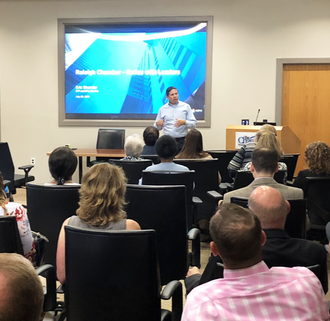 He also spoke about how the company has changed through the years, now with more than 12,000 employees. Much of the success has to do with Red Hat’s open culture, Shander said. “At Red Hat, it doesn’t matter what title you have, everybody has an opinion,” he said. “If I’m in a meeting and people disagree with me, they’ll say it. For me, that is rewarding.” Shander continued to talk about the merits of the open culture at Red Hat. “It’s a mindset that has enabled us to be a lot more agile in getting things done,” he said. Red Hat’s values include freedom, courage, commitment, and accountability, Shander said. He told audience members about the important of the associate experience. “If our associates are happy and engaged, then it’s going to be a great experience and they’ll do great things,” he said. Shander added, “Our folks work really hard and we are about the associate experience. The reason we do this is because we need the creativity and ingenuity from our associates. If we can’t offer a great experience, people won’t come to the company.” He closed by talking about the importance of not only loving your company, but also loving your specific role. “I love my company and I love my job,” Shander said. We want to thank Shander for sharing his great insight. We also want to thank our series sponsors, Duck Donuts and Duke Energy. This was the fifth event in our Coffee with Leaders series, which is meant for companies with 50 employees or fewer. Our next Coffee with Leaders event will be on Sept. 18, Coffee with Natalie Perkins and Jeremy Holden. Perkins is the CEO of Clean and Holden is the company’s president, chief strategy officer, and partner. A registration link will be up soon on our events page. We hope to see you there! If you just moved to Raleigh and haven’t gotten a sense yet of how the community is doing, you’re probably feeling very good about things after hearing The State of the City and County.
Each year, the Chamber organizes this event, hosted by North Ridge Country Club, where we hear from Raleigh’s mayor and the chair of the Wake County Board of Commissioners. They both deliver an address and then we bring in the city manager and county manager so all four can participate in a panel discussion. The State of the County Wake County Commission Chair Jessica Holmes delivered the first address, discussing how Wake County is a county of inclusion. “We’re growing by 63 people a day,” she said. “They’re moving from Virginia, New York, California, and internationally as well from places such as India. We embrace diversity.” Holmes said the number of new or expanding companies that want to call Wake County home “is a testament to our forward thinking and innovative leadership. Companies know that we’re open for business.” Within Wake County government and operations, Holmes said there are more than four thousand employees. She discussed the importance of the county’s paid parental leave program and living wage policy. “As of right now, every single Wake County employee makes enough to make ends meet with our living wage policy (at least $15 an hour),” said Holmes. “As companies move and expand to Wake County, they need to know that we support our business community to tout paid parental leave and living wage policy.” She also discussed challenges she sees in the community, including the need for expanded pre-K and housing affordability. Holmes referenced the Chamber’s Inter-City Visit and Leadership Conference in Seattle, which took place in April. “The average median price of a house in Seattle is about $820,000 – 830,000,” she said. “Each and every one of you should care because I don’t know many people in this community can afford a house like that right now.” Holmes talked about the county’s $15 million funding commitment in the budget to address affordable housing needs. “The vast majority of those funds are going to creating housing stock,” she said. “We’re creating opportunities.” She also encouraged Wake County residents to vote “yes” on bonds that will be on the ballot in November. The bonds include a $548 million Wake County Public Schools bond, a $349 million Wake Technical Community College bond, and a $120 Wake County Parks and Open Space bond. Specific to the education bond, Holmes said, “We are birthing the equivalent of a new kindergarten class every day. We need to break ground and build schools at unprecedented levels.” She discussed how the bond will help the school system continue its success and remain a key economic driver for success in the county. The State of the City Then, we turned our attention to The State of the City, hearing from Raleigh Mayor Nancy McFarlane. “The state of Raleigh’s economy is strong and growing,” she said. “In fiscal year 2018, 50 counties announced new or expanding operations.” McFarlane talked about continued investments in road infrastructure and the recent opening of Raleigh’s new Union Station. “Union Station is a gateway to downtown, a doorway to downtown,” she said. “It’s going to be a very active part of the city. When the city does this kind of investment, the private economic development comes with it.” She discussed our city’s thriving tourism industry and how there are 3.4 million visitors a year to downtown Raleigh. On affordable housing, McFarlane said it is something the city must continue to address with its partners. “Just being able to live in the city is key,” she said. “We passed $22 million in support of affordable housing projects. If you hear someone say Raleigh is not addressing affordable housing, just look at them and say that’s not true.” McFarlane also echoed the affordable housing challenges that must be met with continued growth in our region. “It’s supply and demand,” she said. “The more people who move here, it’s going to get more expensive.” The mayor told audience members about Raleigh’s investments in resources for public utilities, including a $139 million investment in the next fiscal year. Panel Discussion Our event concluded with a panel discussion including Holmes and McFarlane, along with Wake County Manager David Ellis and Raleigh City Manager Ruffin Hall. Tisha Powell, anchor of ABC-11 Eyewitness News (WTVD), moderated the discussion. McFarlane talked about how she was excited to see such an explosion of the arts and culture in the city in the last 10 years. There also was an audience question about the sunflowers that were planted at Dorothea Dix park. “We had so many people come on Saturday, 15,000 people on Saturday,” said McFarlane. “We had people coming from all over the state.” Part of the discussion also focused on workforce development. Ellis talked about it needing to be a continued focus for Wake County. “We still have a number of folks who aren’t able to tap into this new economy,” he said. Thanks for Making Our Event a Success We are thrilled to be able to bring such an important event to the business community. As business leaders, it is critical to be able to stay informed about events taking place at the local government level as many of these policies and decisions impact the business community. Thank you to our panelists and to our moderator for providing us their insight. Also, we want to thank all of our sponsors for making this event possible. The State of the City and County got a lot of interest from the community. Several news crews were there to cover it and our official hashtag, #ChamberSOCC18, was the top trending topic on Twitter in Raleigh for much of the day. We encourage you to join us on Aug. 14 at the Healthcare Forum for a key discussion with executives from Duke Raleigh Hospital, UNC REX Healthcare, and WakeMed Health & Hospitals about the future of healthcare in the Triangle. 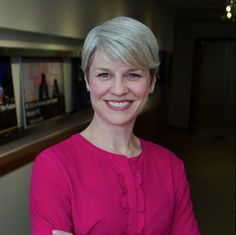 Greetings! If we haven’t already met, my name is Adrienne Cole and I have been the president and CEO of the Raleigh Chamber for more than a year now. It’s an exciting time right now at the Raleigh Chamber and I would like to give you a mid-year update on new initiatives. Job Creation It’s been an incredible year for job creation and recruitment here. The Chamber‘s Wake County Economic Development (WCED) team has been at the center of several large jobs announcements for our region. Our recruitment work secured key projects that will bring significant benefits for our area’s economic future. In May 2017, Trilliant Networks committed to move its global headquarters from Silicon Valley to Cary, planning to create 130 jobs. That same month, Credit Suisse announced it would add 1,200 jobs to Wake County. We were there just this past April as the company broke ground on its expanded RTP campus. When completed, it will house up to 4,000 employees. Not long after the Credit Suisse announcement, Infosys announced in July 2017 that it would bring a 2,000-job tech hub to Raleigh. That represented one of the largest jobs commitments ever in the state of North Carolina. The Raleigh Chamber and its WCED team led a tremendous collaborative effort to recruit the company here. Then, in October 2017, our area got more good news when Victra announced it would bring 250 jobs to Raleigh. Credit Suisse and Infosys show the benefits of WCED’s Foreign Direct Investment strategy. For the first time our area has a targeted, strategic effort around foreign direct investment. We are marketing the Research Triangle’s competitive advantages to a global audience through business development missions and to delegations that come to our area. It is paying off in job recruitment, retention, and investment. Today, there are 625 international companies located within the Research Triangle. Statewide, foreign-owned firms employ more than 250,000 North Carolinians and have contributed more than $14 billion to the economy in the last 11 years. Forty-two percent of the projects landed in Wake County since October 2015 are foreign-owned. To learn more, join us at our first Foreign Direct Investment Forum at Brier Creek Country Club on July 26, 2018 as we highlight Asian investment in the Triangle. Innovation and Entrepreneurship Wake County is growing by about 67 people a day. Half of those people have a bachelor’s degree or higher, so it is no wonder that companies are finding the talent here that they need to thrive. We are consistently ranked among the top labor markets in the U.S. Not only are so many people in our area talented, they also are entrepreneurs. The Chamber nurtures that spirit of innovation in our community through our new partnership with Innovate Raleigh to provide resources and a collaborative atmosphere to entrepreneurs seeking to translate their ideas to viable business models. Bridget Harrington joined us as executive director of Innovate Raleigh in December 2017. Most recently serving for KPMG, Bridget brings with her more than 15 years of finance, operations, and marketing experience. The annual Innovate Raleigh Summit takes place on November 9 and we are excited to deliver such a dynamic, informative symposium for entrepreneurs in our area. Small Business Focus Small businesses are an integral part of our community. Nearly 80,000 Triangle residents are employed by small businesses. The Chamber offers new, free programs and services that help our small business community grow and flourish. Our new Coffee with Leaders series is specifically for companies with fewer than 50 employees to hear from leaders chosen by the attendees on topics related to business leadership and community growth. Raleigh Mayor Nancy McFarlane spoke to the group in March and Wake County Manager David Ellis joined us in May. These new events are a tremendous opportunity for small business owners to keep on top of important topics that impact them. For the first time, we partnered with the City of Raleigh for Triangle Small Business Week during the week of April 29 – May 5. Fifteen events that week explored a range of topics pertaining to small businesses, including ideas for innovation, funding, and ways to champion women in the workplace. We’re holding a half-day event filled with small business roundtables, networking opportunities, and plenty of ways to market your business on Aug. 16. BizFest allows you to connect with Raleigh professionals and learn about ways to grow your business. Table displays are available to share with the community what your company offers. Workforce Development In February, WCED and partners released our Regional Workforce Skills Analysis. We surveyed businesses in a 15-county area surrounding Wake County. More than 500 businesses responded and we learned that nearly three-quarters of them expect to grow within the next three years. Companies most frequently look for workers with a four-year college degree, but there is a need for more workers with a technical education. Networks are the most important tool for sourcing talent and most businesses are recruiting from existing networks, employee references, and online tools. The results of this survey are valuable for the business community as they will learn hiring trends and challenges facing employee recruitment. You can see the results directly at www.raleigh-wake.org, in the Talent & Workforce section. For any community looking to attract top talent, it’s imperative to have a strong record of diversity, equity, and inclusivity. This is a priority for our strategic plan and we have established an internal task force to assess our own practices. We welcomed Danya Perry to our staff in January as the equitable economic development manager. Danya’s work will mobilize communities across Wake County and identify ways to achieve equitable growth. On August 22, we will launch an annual Diversity, Equity, and Inclusivity Conference. We are proud to be at the heart of efforts geared toward ensuring that this is a place that everyone will want to call home and where all Wake County residents can participate in our thriving economy. Transportation and Mobility Robust job creation means more people are moving through and around the Triangle. As Raleigh becomes a larger metro area, encouraging the implementation and expansion of regional transportation is even more vital. As a community, we also need to manage traffic and commute times. The work of the Regional Transportation Alliance (RTA), a program of the Raleigh Chamber, enhances the mobility of Triangle commuters. The RTA team, led by Joe Milazzo, analyzes and determines wise infrastructure investments for our community and then advocates for them. We advance transportation solutions that help our business community attract top talent and grow our economy. Our top priority currently is to accelerate the construction of 540 to I-40 to ease traffic congestion and reduce travel times. We were excited to see the authorization for the project’s final environmental impact statement in December, eight months early. Our mission has led to a number of other successes in the past year that benefit the business community. The NC General Assembly approved more than $30 million in annual recurring funds for RDU Airport to fund the Vision 2040 RDU Master Plan. State lawmakers also signed off on a $44 million annual recurring fund for low-cost congestion relief projects statewide, a concept RTA introduced to accelerate those projects. Wake Transit began implementation of the largest successful county transit referendum in state history. In October, Raleigh voters gave a green light to a $207 million transportation bond which will pay for a number of road widening projects and other upgrades. We also saw the successful implementation of on-ramp signals for I-540 in North Raleigh, easing congestion during busy commute times. Additionally, we are excited to see the beginnings of Raleigh’s bike share program. We also had a successful Summit Series in May where business leaders collaborated to find transportation solutions to address challenges related to growth in our community. We will build on these ideas and will continue to advocate for effective transportation solutions that enhance our region. Quality of Place The Chamber actively represents the business community’s perspective on growth and prosperity. Our focus begins with our region’s future business leaders: today’s students in the Wake County Public School System. We are working with our community on a school bond referendum to enhance the educational experience for the growing number of students coming to Wake County. We are working hard to keep our elected officials aware of the business community’s needs and concerns. Recently, we hosted our annual Legislative Reception, where Chamber members connected with members of the NC General Assembly. Decisions are made every day that impact the business community. The Chamber ensures that your thoughts are heard by the people that make those key decisions. In Closing Today’s Raleigh Chamber is the hub of a network of business and community leaders who share a commitment to business profitability, growing a dynamic economy, and making our region the country’s best place to work and live. Your support helps us fulfill our mission. I welcome your thoughts about the future and direction of the Raleigh Chamber. Please contact me at [email protected] or 919.664.7020 if you’d like to talk. We appreciate your membership and your leadership in the business community. Sincerely, Adrienne Cole President and CEO Greater Raleigh Chamber of Commerce Our Chamber Professional Women’s Luncheon series returned on Friday at the Embassy Suites Raleigh-Durham/Research Triangle. At this session, our audience learned about mentors and sponsors and how both can be key to business and professional development.
They heard from a distinguished panel of four insightful speakers. Sheila Ahler, a retired partner at Cherry Bekaert LLP, moderated the discussion. She opened by explaining the differences between a mentor and a sponsor. “A mentor is there to advise and a sponsor is there to advocate,” she said. Ahler then asked Megan West Sherron, assistant dean of external relations at Campbell Law School, to talk about the mentorship program at Campbell Law. “We have great mentors to come in and talk to our students and our attorneys,” she said. “They are paired up for a year. We have found a huge success in it. Daily, I get feedback from people who meet with their mentor years later.” West Sherron also said that a good mentee arrives ready to learn. “Show up and be prepared to listen because that’s when you will get the most out of it,” she said. Nate Spilker, vice president of product management at Citrix, then discussed the new mentorship program at Citrix. “The program shows leadership in the organization believes this is important,” he said. “Programs like this have to be supported from the top or they will not last. The program also is set up to help people raise their hands. It’s important to our employees now and important to our company for our future.” Spilker also said it’s important for professionals to find different mentors at different points in their careers. “Early in your career, look for mentors not based on what they’re doing, but how they’re doing it,” he said. West Sherron added, “I would encourage you to look and see what it is that you are trying to develop about yourself.” The conversation then turned to sponsorships. Ahler asked Donna Sylver, chief financial officer and senior vice president for the Raleigh-Durham International Airport, to talk about what she thinks people need to know about sponsorships. “Sponsors are really, really careful about who they put up front,” said Sylver. “You can pick a sponsor, but it’s probably the other way around because their credibility is on the line.” Sylver said it’s important to impress sponsors enough that they will want to sponsor you. “You need to make sure that your value proposition gets noticed,” she said. When discussing what makes a good sponsor, Sylver said, “A sponsor’s job is to put you in the right place at the right time to get you promoted or whatever the next step is for you. You should pick someone who can get you to the next level. You don’t have to like them. But, you want somebody who can open some doors for you.” Ahler added, “A sponsor can’t give you something, other than an opportunity. But, that opportunity really is a gift.” The panelists then discussed how to find the right mentor or sponsor. “It’s important to first do a self-assessment about what you’re trying to get out of the mentorship,” said West Sheron. “Then, ask them about how they got to where they are.” We want to thank all of our panelists for a great discussion, as well as all of our sponsors. Our next Chamber Professional Women’s Luncheon will be in November. Please check back on our events page for more information on that event. |
AuthorGreater Raleigh Chamber of Commerce Archives
July 2024
Categories
All
|
|
Greater Raleigh Chamber of Commerce
800 S. Salisbury St. Raleigh, NC 27601 |

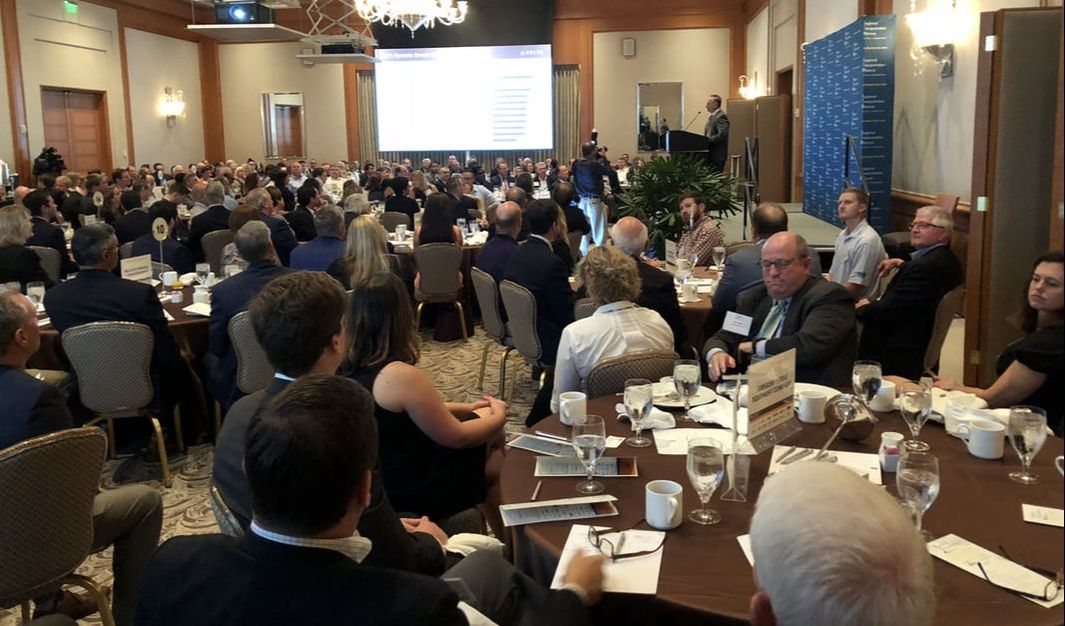
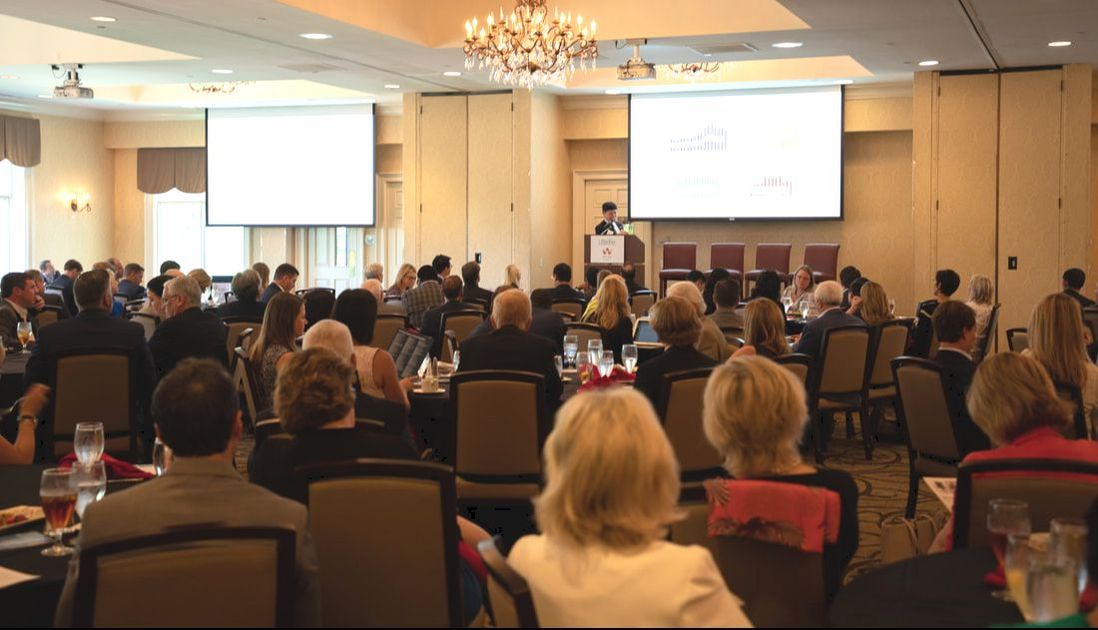
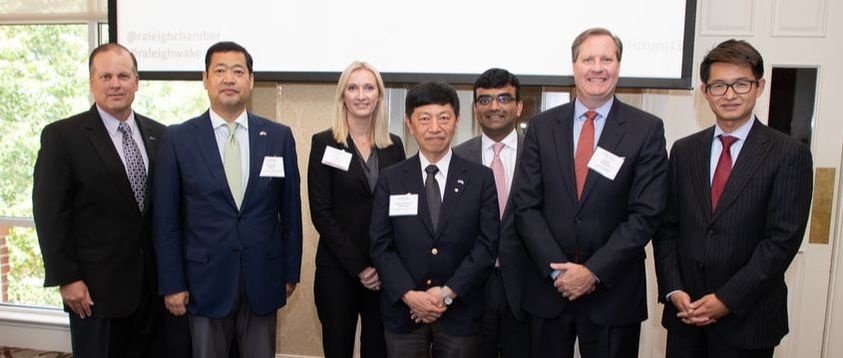
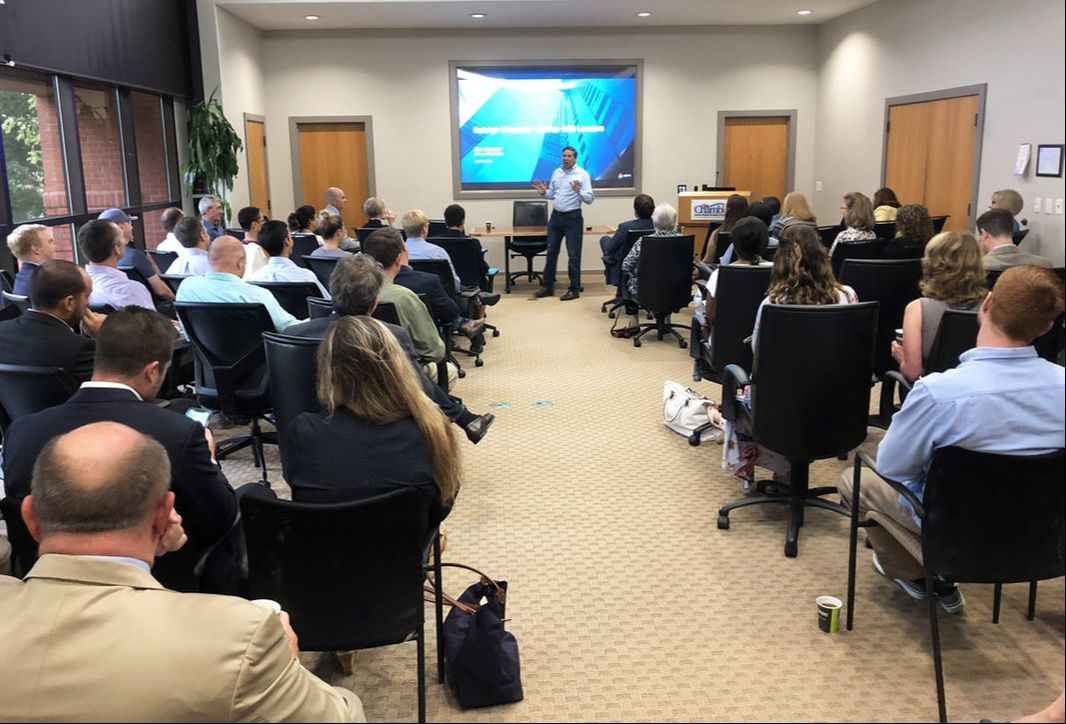
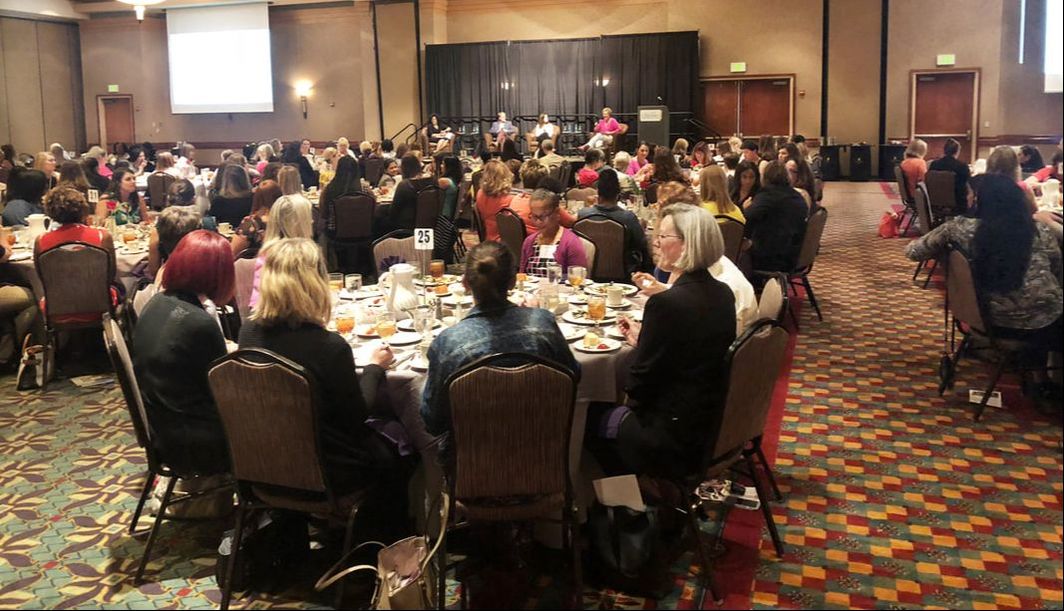
 RSS Feed
RSS Feed